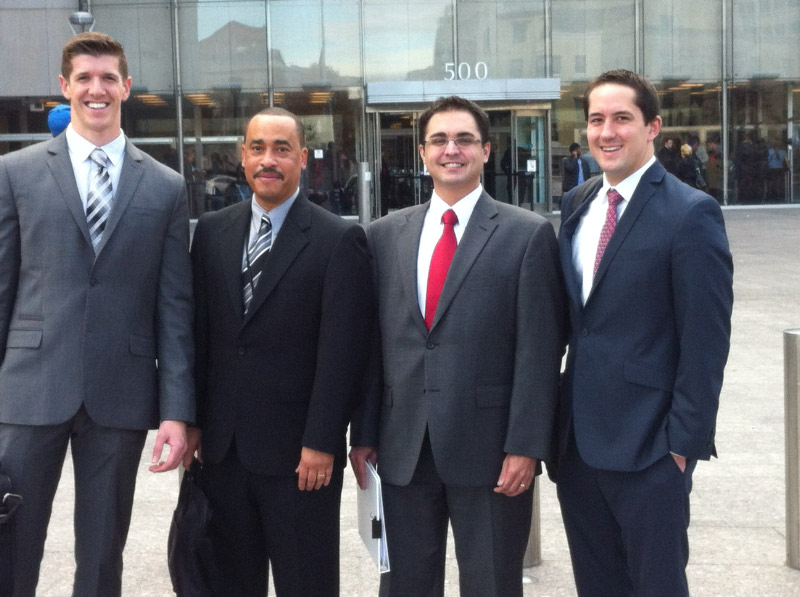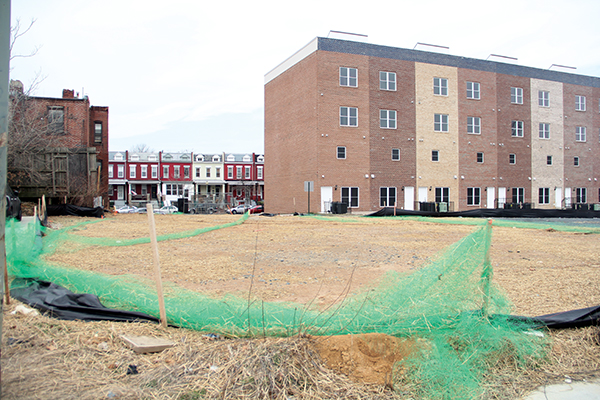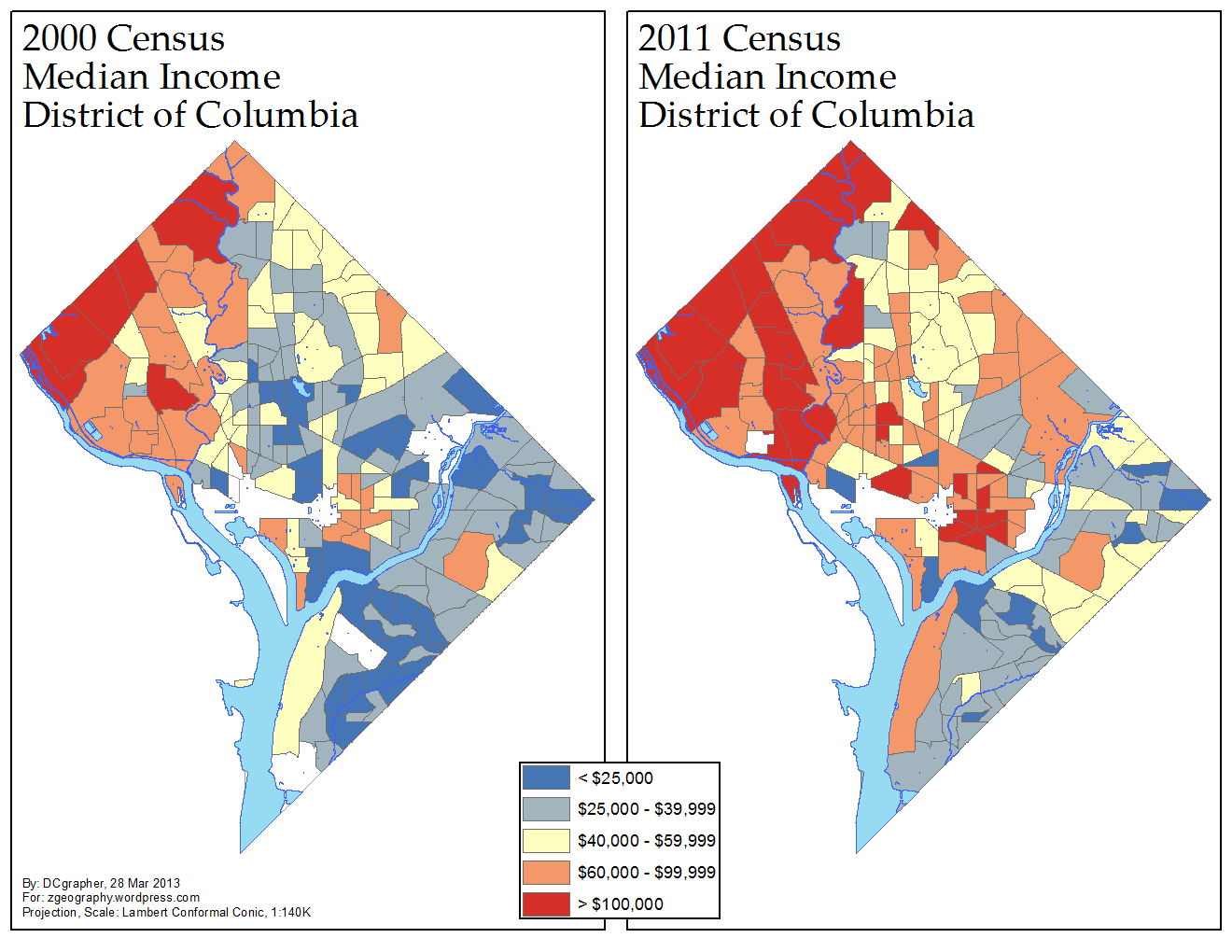
The CUA Law team in front of the Moultrie Courthouse on the first day they were in court. From left to right:
(2D) Conor Maguire; (2D) C. L. Hamilton; (3D) Adam Hare; (3D) Bill Durdach; (not pictured, 3E Rita Sono.)
Working with cross-town peers, five Catholic University law school students have succeeded in getting serious housing code violations corrected for nine tenants of a Southeast, Washington, D.C. housing complex that the owner wants to demolish and redevelop. Starting with an effort that began last summer, it took nine separate law suits in housing condition court to compel the landlord to bring the property into compliance with the housing code.

The five CUA Law students worked through the law school's Civil Practice clinic (the recently renamed General Practice clinic) and partnered with the Legal Clinic for the Homeless, Housing Counseling Services, and Howard University's Fair Housing Clinic in getting the dangerous and illegal conditions addressed. "These cases gave students a close up look at the price long-term residents of D.C. pay when their neighborhoods are redeveloped," commented Catholic University law school Professor Faith Mullen, who oversees the civil practice clinic. "Our clients are at ground zero of that battle: A developer purchased their building, intending to demolish it and to build a luxury high-rise." The affected tenants want either a buyout or the right to return to their homes, a negotiation that promises to be a drawn out process. In the meantime, however, while the developer secured the necessary zoning approval and permits, he largely stopped making repairs to the building, leaving the tenants in deplorable conditions. In his own written narrative of the case, CUA Law student Adam Hare (3L) described what he and fellow students discovered after they engaged with the case: "Old carpets became soiled with rodent feces, mold, mildew, and roaches. The small plumbing leaks became a putrid pool of water emitting a noxious, permeating smell…As some tenants moved out-yielding to what amounted to constructive eviction-squatters moved in to take their place. Vagrants broke into the basements of the buildings, used drugs, had sex, defecated and urinated in the common areas of the buildings, and left as destructively as they came. Windows were broken, their screens were slashed, and the doors to individual apartments were kicked in. The security of the building was compromised. Still, the developer hardly did anything." As a result of the lawsuits, however, the court ordered the landlord to exterminate mice and roaches, to eliminate standing water in the basement, to address a carbon monoxide leak, to repair faulty electrical outlets, to install locks and lights, and to address many other health and safety violations. The last two cases were resolved on Jan. 16.  "I think this case meant a lot to the students; it enhanced their understanding of the high cost of poverty," said Mullen. "It was also an opportunity for students to see the value of collaboration with community partners, each of whom contributed to the successful resolution of this case." Hare said the work he and fellow CUA Law students performed was motivated by a simple desire for justice on behalf of the marginalized. "That notion that the developer wishes to displace the tenants may or may not be true. What is true, however, is that the tenants were living in squalor. They deserve better. All they want is a habitable home," said Hare.
"I think this case meant a lot to the students; it enhanced their understanding of the high cost of poverty," said Mullen. "It was also an opportunity for students to see the value of collaboration with community partners, each of whom contributed to the successful resolution of this case." Hare said the work he and fellow CUA Law students performed was motivated by a simple desire for justice on behalf of the marginalized. "That notion that the developer wishes to displace the tenants may or may not be true. What is true, however, is that the tenants were living in squalor. They deserve better. All they want is a habitable home," said Hare.
